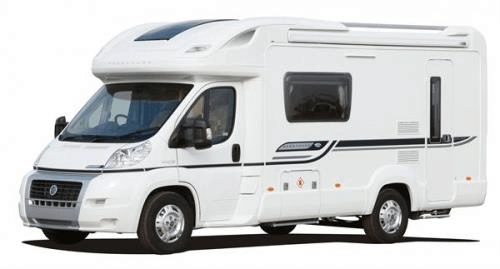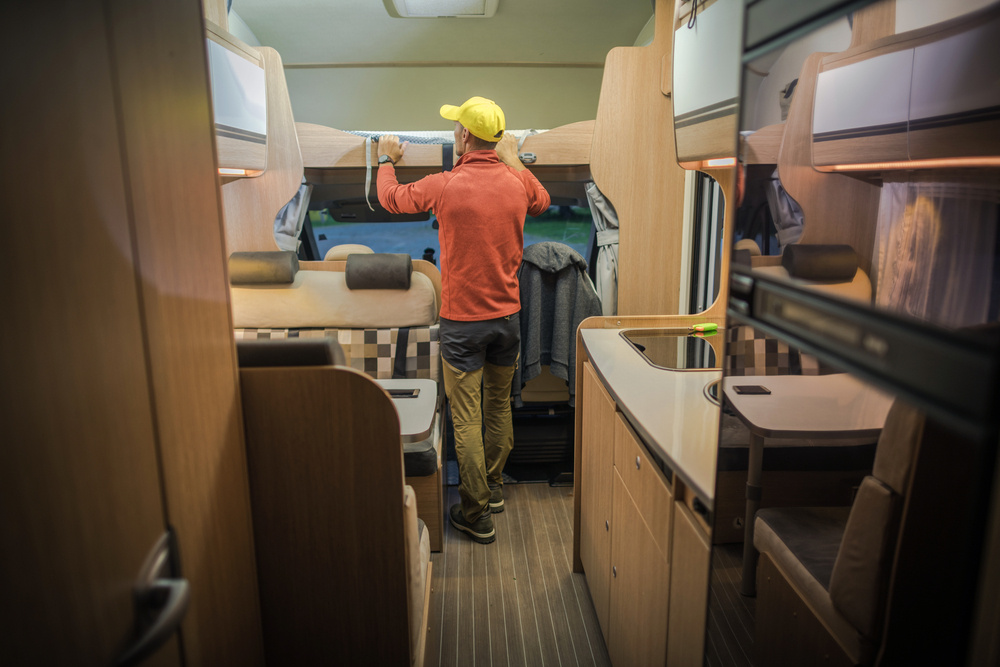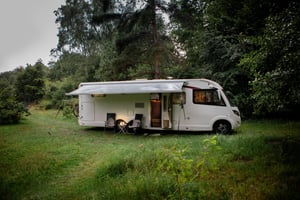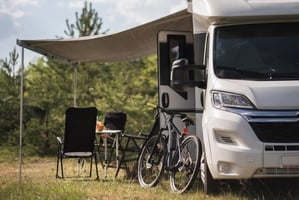What is wild camping? Well, it’s when you set up camp, away from a campsite, ideally somewhere...
To make sure your motorhome remains a safe and comfortable place to be, it’s essential to do regular maintenance on it. One key part of this maintenance effort includes the habitation check - which is a comprehensive inspection designed to keep your motorhome in tip-top condition. If you’re new to motorhoming or simply want to understand what’s involved, our guide will walk you through what to expect, and why you might want to get into the habit of doing habitation checks.
What is a habitation check?
A habitation check is a detailed assessment of the living area of your motorhome and looks at safety, functionality and also any wear and tear. It focuses on both making sure your motorhome is safe to be in, and also on helping to identify and catch any problems early so that you can fix them. In the UK, if the motorhome is still under warranty, you might also find that a habitation check is needed to prevent the warranty from becoming invalid. A bit like having your car serviced, having a series of habitation checks also shows that you have looked after your motorhome, which can help if you ever come to sell it.
Unlike a mechanical service, which looks after the engine and other mechanical parts, the habitation check ensures the living quarters are safe, and ready for all of your travelling adventures.
It’s recommended to have a habitation check done annually.

What are the key areas covered?
A habitation check is conducted by a qualified engineer and typically takes a few hours. Here are the main areas covered:
1. Damp testing
Damp is one of the biggest threats to motorhomes, as it can cause long-term structural and internal damage to the motorhome (and also health issues to the people in it). During the check, a moisture meter is used to detect any signs of damp or water ingress. Early detection can certainly save you from more costly repairs down the line.

2. Gas system inspection
The gas system powers key appliances like your cooker, and potentially the heating and water heater. The engineer will check for leaks, test the gas appliances, and ensure the system complies with current safety standards. Gas safety is crucial to prevent issues such as carbon monoxide poisoning.
3. Electrical checks
The electrical systems will be tested to ensure they are functioning properly. This includes inspecting the sockets, lights, the leisure battery, and any connected appliances, as well as fuses and RCDs. Faulty electrics can be both inconvenient and dangerous, so this is a key part of the overall check.
4. Water system testing
The water system, including the taps, shower, toilet, and waste pipes, is inspected for leaks and blockages. The engineer will also test the water pump, tank, and filters, and ensure the system is working efficiently, and that it is bacteria- and leak-free.
5. Heating and ventilation
Your heating system will be tested to ensure it’s keeping the living space warm, which is particularly important for year-round travel! The ventilation systems are also checked to ensure proper airflow, which helps prevent condensation and damp.

6. Fire and safety equipment
The fire safety equipment, such as smoke alarms, carbon monoxide detectors and fire extinguishers and fire blankets will be inspected to ensure they are all in good working order.
7. Bodywork and seals
The bodywork, windows, doors, locks, hinges and seals will be checked for signs of damage, wear or leaks. Properly maintained seals help prevent water ingress, a common cause of damp and structural damage.
Additionally, some engineers may also inspect the furniture and fixtures for wear and tear. They may also look at the awning rail and attachments, ensuring they are secure and free of debris, and look at the underbody.
Why is a habitation check important?
Well, apart from just offering you peace of mind that all is well, having regular habitation checks will ensure the safety of you and others using your motorhome, as faulty gas or electrical systems can pose serious risks. Addressing any wear and tear keeps your motorhome in good condition and maintains its value, and, as we said earlier, if your motorhome is under warranty, a habitation check might be a condition for coverage - as well as for your insurance policy, so do check this out.
Also, it helps you avoid those annoying unexpected issues, as identifying problems early can save you from expensive repairs down the line, or something going wrong during your travels.
How to arrange a habitation check
Habitation checks can be carried out by approved workshops or mobile technicians who will visit your home or motorhome storage site. You should always ensure that the engineer is qualified and certified by a recognised body such as the Approved Workshop Scheme (AWS) or the Gas Safe Register.
The checks take a few hours, and prices typically range from £200 to over £300, depending on the size of your motorhome and the scope of the check. You’ll get a report afterwards, which will indicate any areas that need your attention.
So there we have it. A motorhome habitation check is, really, a pretty essential part of motorhome ownership. By keeping your living space safe and functional, it ensures you can enjoy hassle-free travel all year round.








